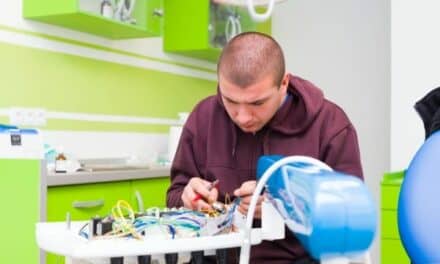This article will appear with 24×7’s June 2016 anniversary coverage.
Forget about the “good old days.” Let’s look ahead to the future. The future can truly be the best days for healthcare technology management (HTM).
We hear too many people moaning and groaning about the tough times that HTM is experiencing today. Not enough people. Not enough training. Not enough influence. Not enough power. Not enough…
Could it be that the profession is in need of a good housecleaning? Could it be that the older managers who are running many of the shops today learned their management skills during the days when it was easy to hire more staff, attend lots of schools, and be the most technical person in the hospital? Could it be that these managers have become stuck in the past?
As healthcare evolves, and healthcare administration changes, the way we manage has to change also. I run into many managers who expect to be able to manage just as they did 10, 15, or 20 years ago. And when they are relegated to operating a “fix-it” shop, with no real influence in the big scheme of the organization, they get upset and think it is everybody else’s fault.
Wake up. If things aren’t going the way you want them to, the first (and most likely) cause is you. As a manager, you have the responsibility to adapt and translate your professional needs into the language that other people in your facility (administration, materials management, IT, nursing) will understand and embrace.
I am excited about the new and young managers that are going to be taking over in the next few years. They bring a fresh approach to the profession. They are not stuck in the past the way many of us are. (I am 62 years old. I try to remain forward-thinking, but I have to constantly fight myself to keep from slipping into the “good old days” mentality.)
If current managers can remake themselves in the image of newer, younger, successful managers, we can begin to reassert ourselves as the technology leaders in healthcare.
Consider a new term—reverse mentoring. When we think of mentoring, we naturally think of a young person learning from an older, more experienced person. How about doing the opposite? Why doesn’t every older manager look around and find a successful young HTM manager? Approach that person and form a symbiotic relationship. It should not be a superior/subordinate dynamic, but rather a bond in which it is acknowledged at the onset that both are equals. Each person has something to offer the other.
With reverse mentoring, both parties can benefit from an honest, respectful exchange of ideas, without the belief that one is superior to the other. I can identify dozens of “young” (ie, under 50) HTM managers who are very successful in their own right.
Oh, and maybe we need to redefine what constitutes “success” for an HTM operation. Is it fixing everything? Is it being on the most committees? Is it having the most staff? The most clinical engineers? The biggest budget? The fewest contracts? The lowest cost of service ratio? The biggest paycheck?
Until we know where we are headed, we cannot plan our route to get there.
I firmly believe that the best days of HTM are before us. Those of us who built the profession for the past 40 years had a great time and fought many battles. But times change, and the skills that got us here are not necessarily the ones that will take us to the next level. We have to leave that to the next generation of highly capable HTM managers.
But our values must remain unchanged. Patient safety must reign supreme. Equipment accuracy and reliability must follow closely. And of course, cost is always a consideration.
We must never lose these values, but let’s change our daily focus to move into the future.
Patrick Lynch, CBET, CCE, CHTM, is a biomedical manager with 40 years’ experience.
Photo credit: © Pinonsky | Dreamstime.com






Agreed, Patrick. Well argued.
Pat,
You are right on with your comments. I’d probably take it a step further and say this “good ole days” thinking extends to all walks of life. Especially for the boomers. There’s no doubt that mentorship is a two-way street and has enormous value. Just like parents learning from their kids. Keep up the good work.
Chris Walton (WA Biomed Association)